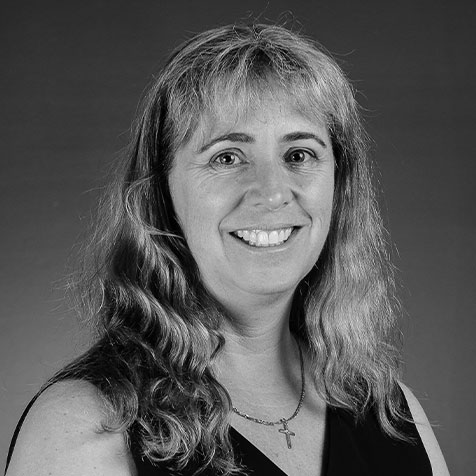At a glance
Cassandra Portelli
Head teacher mathematics, Hunter School of the Performing Arts

As a recipient of the New South Wales Premier’s First State Super Scholar for Financial Literacy, I have been blessed with the time and resources to travel the world researching ways to ensure the next generation learn about earning, budgeting, saving, borrowing and investing.
Australia is a lucky country in so many ways, and we are especially lucky that money isn’t a taboo subject in our communities; so much of our financial literacy is learned from home.
We are also fortunate that it is embedded in our national curriculum from the earliest years, meaning every teacher in every grade in every school has a part to play in shaping a child’s understanding of finance.
Unfortunately, money is becoming more intangible, and the result is that knowing how it ebbs and flows has become more difficult for a young person to discern.
"Every teacher in every grade in every school has a part to play in shaping a child’s understanding of finance. Unfortunately, money is becoming more intangible, and the result is that knowing how it ebbs and flows has become more difficult for a young person to discern."
A series of grants from the Australian Securities and Investments Commission (ASIC) MoneySmart has allowed the Hunter School of the Performing Arts to truly engage with Global Money Week. Our Performing Arts and MoneySmart initiatives have allowed our students to learn through their passion for performance, and ultimately to share this with the rest of the country.
I also believe that mentoring and role-modelling in schools is a valuable way to secure the next generation of financial experts. I am so grateful to the local financial institutions and experts in our community that present to our students, support an annual prize or mentor a gifted young mathematician.
Neil Edmond
CEO and co-founder, MoneyTime

You bet your life it should be!
Personal finance is something every single person should learn, because everyone’s financial stability and success throughout life depend on it. Most parents weren’t taught it and don’t feel confident teaching it to their kids, so teaching it in schools is the obvious place to start.
Ages 10-14 are when most kids are starting to earn and spend their own money via allowances or part-time jobs, so this is the best time to teach them the fundamentals. It’s best they develop the knowledge and confidence to make good financial decisions from the get-go.
However, most teachers weren’t taught personal finance either, so they also lack the confidence to teach it.
This is where self-taught programs are a big advantage. These kinds of programs do the teaching, ensuring the material is taught at a consistently high standard and in an enjoyable and engaging way.
Most kids like being online and playing games, so this is a great way to teach them financial literacy.
"Personal finance is something every single person should learn, because everyone’s financial stability and success throughout life depend on it. Most parents weren’t taught it and don’t feel confident teaching it to their kids, so teaching it in schools is the obvious place to start."
Gamified online financial literacy programs such as MoneyTime help kids to learn from self-taught modules. Children are rewarded with money for each correct answer to spend on avatars and investments within the program.
This builds confidence in making their own financial decisions. They spend, save, donate and invest – just like they will have to do in real life.
Imagine the next generation not making the same financial mistakes as their parents. People would be happier, healthier and more prosperous.
Yes, financial literacy should absolutely be taught in schools.
Dr Vanitha Raguanthan
Senior lecturer in Finance, University of Queensland

Financial literacy is the understanding of concepts such as compounding, the time value of money, diversification of risk and the impact of inflation, and has an outsized impact on future financial outcomes.
The benefits of being financially literate are numerous, with the financially savvy less likely to fall victim to financial scams, more inclined to plan for their retirement, participate in financial markets by investing in stocks and less likely to incur high borrowing costs and fees.
Recently introduced fintech products, such as online trading platforms like Robinhood in the US and Stake in Australia, and buy now pay later (BNPL) schemes primarily target young consumers. While these new innovations have made it cheaper to trade and use financial options, they are not costless.
"The benefits of being financially literate are numerous, with the financially savvy less likely to fall victim to financial scams, more inclined to plan for their retirement... and less likely to incur high borrowing costs and fees."
Research shows that consumers aged 18-29 account for roughly 24 per cent of BNPL transactions, which incur zero per cent initial costs, but transform into credit card-like interest rates of about 20 per cent.
The average client of Robinhood is 26 years of age – they hold concentrated portfolios and their option trading results in wealth transfers to institutions.
Given the young have the least financial knowledge, their ease of access to margin loans and sophisticated financial instruments can have negative consequences.
While voluntary programs by non-government organisations go some way towards addressing the knowledge gap, it is time to mandate financial literacy courses in high school; however, the curriculum would need to be updated.
Many states in the US are making financial literacy courses a requirement for graduation from high school, and countries like Australia should follow suit.
Meet the experts
Cassandra Portelli
Cassandra Portelli is head teacher of mathematics at Hunter School of the Performing Arts in New South Wales. She was a recipient of the NSW Premier’s First State Super Financial Literacy Scholarship in 2017, touring countries participating in Global Money Week and making recommendations for change at local, state and federal levels. She has also worked with ASIC on MoneySmart teaching resources and implemented a nationwide Global Money Week Financial Literacy Challenge.
Neil Edmond
Neil Edmond is the CEO and co-founder of MoneyTime, an award-winning New Zealandbased financial literacy program for 10-14 year olds that recently expanded into Australian schools. The designer and author of MoneyTime, Edmond is concerned that his children’s generation are growing up with limited financial literacy and is inspired to do something about it.
Dr Vanitha Ragunathan
Dr Vanitha Ragunathan is a senior lecturer in finance at the University of Queensland. Her research has been published in the premier finance journals and featured in international business publications such as the Financial Times.

